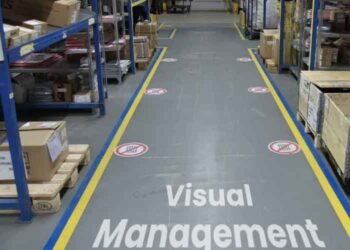In the fast-paced world of wholesale, technology has become the cornerstone for success. Today’s wholesale challenges today include inventory management, logistics, and customer demands.
Fortunately, technological advancements offer innovative solutions to streamline operations and drive efficiency.
This comprehensive guide explores smart tech solutions tailored for wholesalers, enabling them to navigate complexities and thrive in a competitive market.
Tech-Infused Inventory Management
Efficient inventory management stands at the core of successful wholesale operations. Thanks to technology, wholesalers can now leverage advanced inventory management systems powered by AI and machine learning. These systems offer real-time insights into stock levels, demand forecasting, and trends, minimizing overstocking or stockouts. With automated replenishment algorithms, wholesalers can optimize inventory levels, reducing carrying costs and enhancing cash flow.
Furthermore, the integration of RFID (Radio-Frequency Identification) and barcode scanning technologies has revolutionized inventory tracking. These tools enable wholesalers to monitor stock movements accurately throughout the supply chain, from warehouses to retail outlets. Cloud-based inventory solutions ensure accessibility from anywhere, facilitating seamless collaboration among teams and suppliers. The result is a leaner, more agile inventory management process that caters to evolving market demands.
Streamlined Logistics through Automation
Logistics presents another critical aspect where technology-driven solutions offer immense benefits to wholesalers. Automation plays a pivotal role in streamlining logistics operations, from order processing to shipment tracking. Automated order fulfillment systems enhance accuracy and speed, significantly reducing errors and processing time. This automation extends to warehouse operations with the adoption of robotics and AI-driven picking systems, optimizing storage and retrieval processes.
Moreover, the implementation of route optimization software enhances delivery efficiency, minimizing fuel consumption and transportation costs. Integrating GPS tracking and IoT (Internet of Things) sensors in vehicles ensures real-time monitoring of shipments, allowing wholesalers to proactively address potential delays or issues. Collaborative platforms and mobile apps enable seamless communication between logistics partners, ensuring a smooth flow of goods across the supply chain.
Enhanced Customer Engagement with Tech Tools
Customer engagement and satisfaction are pivotal for wholesale success. Technology provides innovative tools like real estate wholesaling software to enhance customer experiences and relationships. Customer relationship management (CRM) software allows wholesalers to manage interactions, track preferences, and personalize communications effectively. AI-powered chatbots and virtual assistants offer instant support, addressing queries and providing information 24/7.
Additionally, e-commerce platforms and online marketplaces enable wholesalers to expand their reach and cater to changing consumer preferences. Implementing analytics tools helps in understanding customer behavior and preferences, enabling wholesalers to tailor offerings and promotional strategies. By leveraging social media and digital marketing tools, wholesalers can engage with customers, build brand loyalty, and drive sales.
Supply Chain Visibility and Transparency
For wholesalers, achieving visibility and transparency across the supply chain is crucial. Modern technology offers tools like blockchain that revolutionize supply chain management by providing an immutable record of transactions and movements.
Blockchain ensures transparency, traceability, and authenticity, reducing counterfeit products’ risk and enhancing stakeholder trust. Smart contracts embedded in blockchain technology automate and secure agreements, simplifying complex transactions while minimizing disputes.
Furthermore, IoT devices and sensors integrated into the supply chain facilitate real-time monitoring of goods in transit. These devices track conditions like temperature, humidity, and location, ensuring product integrity throughout the journey. By enhancing supply chain visibility, wholesalers can mitigate risks, optimize inventory flow, and build stronger relationships with suppliers and customers.
Data-Driven Decision Making
In the age of big data, harnessing information is pivotal for wholesalers to make informed decisions. Advanced analytics and business intelligence tools empower wholesalers to extract actionable insights from vast datasets. These tools provide comprehensive reports and predictive analytics, enabling better forecasting, pricing strategies, and identifying market trends.
Moreover, machine learning algorithms analyze historical data to forecast demand accurately, allowing wholesalers to optimize inventory levels and allocate resources efficiently. By embracing data-driven decision-making processes, wholesalers gain a competitive edge, make agile business choices, and drive profitability.
Cybersecurity Measures for Protection
As technology becomes more integrated into wholesale operations, ensuring robust cybersecurity measures is paramount. Wholesalers deal with sensitive data, including customer information and financial transactions, making them potential targets for cyber threats. Implementing robust cybersecurity protocols, such as encryption, firewalls, and multi-factor authentication, safeguards against data breaches and cyber-attacks.
Regular security audits and employee training on cybersecurity best practices are crucial to maintaining a secure environment. Additionally, investing in cyber insurance provides an added layer of protection against potential financial losses due to security incidents. Prioritizing cybersecurity fortifies the integrity of operations and instills trust among partners and customers.
Sustainable Practices Enabled by Technology
In today’s environmentally conscious landscape, technology plays a pivotal role in enabling sustainable practices for wholesalers. IoT sensors and analytics tools help monitor energy consumption and optimize resource utilization in warehouses and distribution centers. Implementing smart, energy-efficient technologies reduces carbon footprints and operational costs.
Furthermore, digitalization and automation decrease paper usage and enable paperless transactions, contributing to environmental conservation. Embracing sustainable practices benefits the planet and resonates positively with customers who prioritize eco-friendly businesses, enhancing brand reputation and market competitiveness.
Conclusion
In today’s competitive wholesale landscape, embracing technology is not just an option but a necessity for growth and sustainability. Smart tech solutions empower wholesalers to optimize inventory management, streamline logistics, and enhance customer engagement. Embracing these technological advancements positions wholesalers to adapt to market changes swiftly and meet evolving customer demands. By integrating these tech-driven strategies, wholesalers can achieve operational efficiency, drive growth, and stay ahead in the dynamic wholesale industry.












